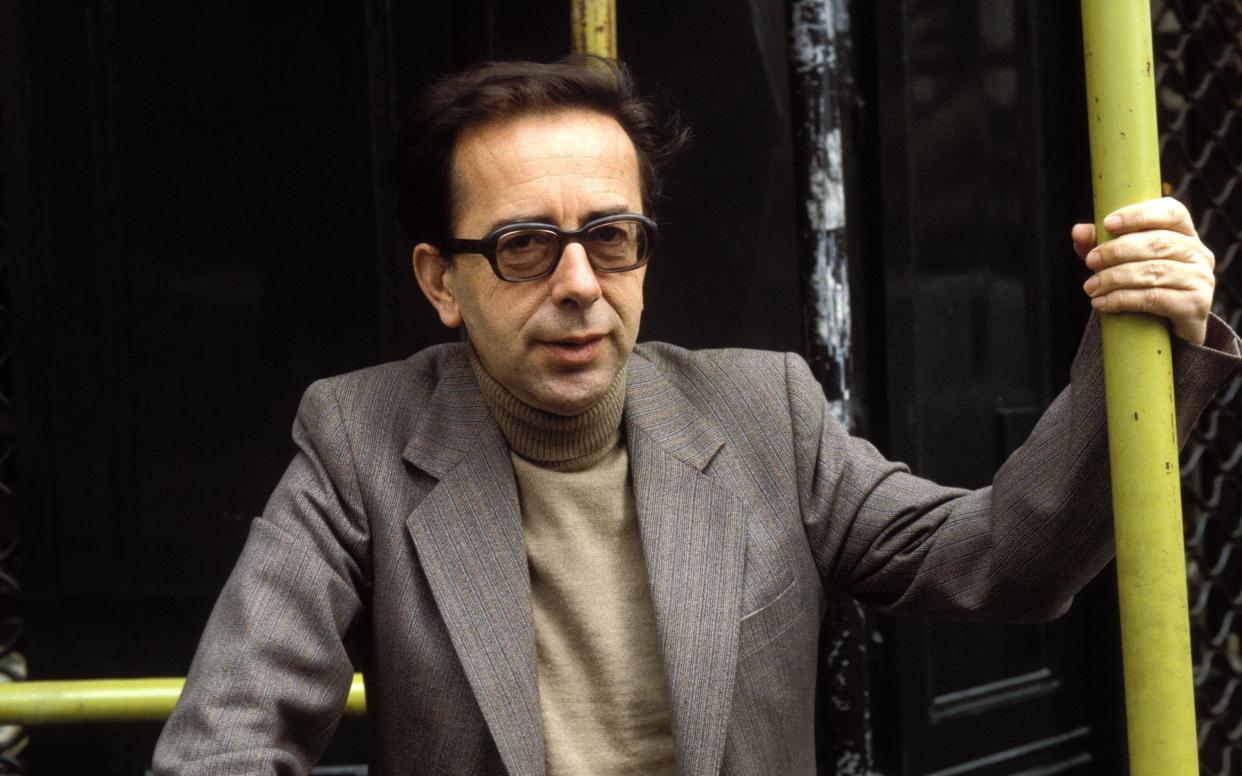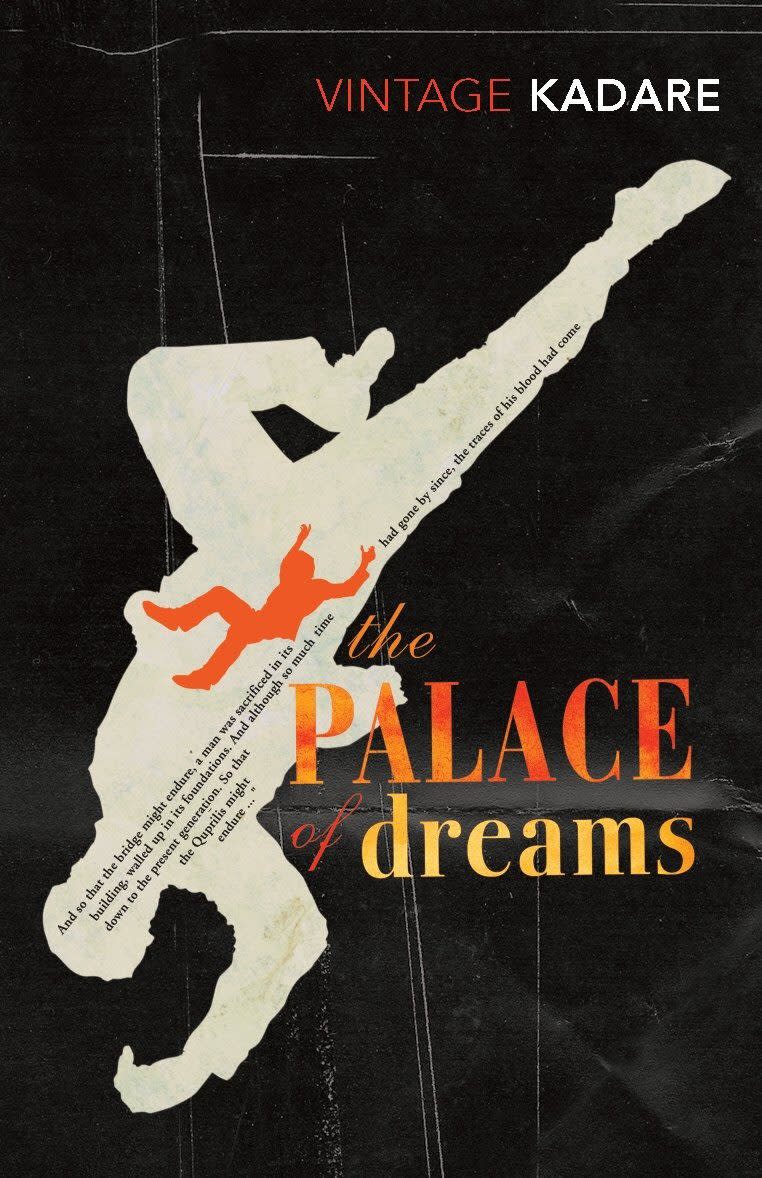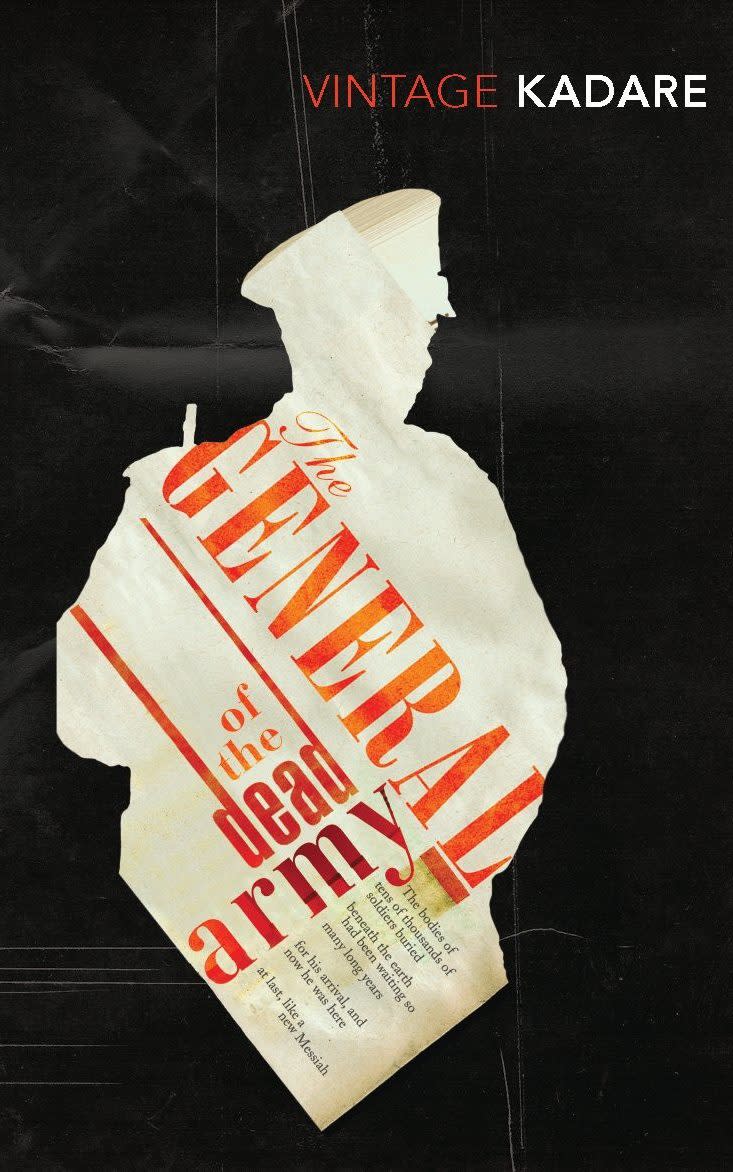Ismail Kadare, Albania’s most famous writer, whose barbed fables criticised Hoxha’s regime – obituary

- Oops!Something went wrong.Please try again later.
- Oops!Something went wrong.Please try again later.
Ismail Kadare, who has died aged 88, was Albania’s most successful writer, both at home and abroad. In Albania, over a million of his books have been sold, one for every three Albanians. Abroad he was best known in France, where his work was first appeared in translation, and to where he defected in 1990; but he also gained an appreciative readership in Britain, particularly after winning the Man Booker International Prize in 2005.
His novels range from allegorical denunciations of the communist regime Albania endured for 40 years to haunting evocations of Albanian and Balkan ritual. Instead of the encouraged genre of socialist realism, he persisted with fables, somewhere between Orwell and Aeschylus.
Half of the books he published under communism were banned, and he had to smuggle the pages out of the country stuffed into wine bottles; but the tolerance of the other half led some to accuse him of being Hoxha’s “official dissident”.
Certainly there was a cat-and-mouse game. In 1970, under duress, he wrote a sympathetic fictional portrait of the dictator in The Great Winter – the price of being able to keep writing – but managed to turn what he called a “bribe” into a subtle critique. He also served as a puppet member of the Albanian parliament from 1970 to 1982, and lived in relative luxury, even enjoying, in a country where private transport was prohibited, the luxury of his own VW Golf.

This came back to haunt him in the 1990s, when an American critic whipped up a backlash in an article entitled: “Don’t Give the Nobel to an Albanian Party Hack!” Kadare strenuously denied that he had been a collaborator, and made no false claim to have been a dissident, a position which would have led to a firing squad within days. Instead, his work spoke for itself as “a very obvious form of resistance”.
His approach, wrote the critic Julian Evans, was never “an ideologue’s but a novelist’s: a writer not of speeches but of a sensitivity to every human inconsistency, to every irony and concealed thought”.
The son of a minor civil servant, Ismail Kadare was born on January 28 1936 on a street called “Lunatics’ Lane” in Gjirokaster, a town near the Greek border, which had also produced the more-Stalinist-than-Stalin communist dictator, Enver Hoxha.
Kadare began his writing career as an adolescent poet (obsessed by Macbeth, but not above effusive paeans to the Communist Party), before going on to study at the university in Tirana and at the Gorky Institute in Moscow.

His stay in Russia was cut short when Hoxha fell out with the leader of the Soviet Union at that time, Nikita Khrushchev, whom Hoxha regarded as a dangerous reformer. Albania broke off relations with the Soviet Union and fell into the arms of China, who were also at odds with Russia and who were desperate for friendly relations with any socialist country in Eastern Europe.
Then, following the Sino-Soviet rapprochement, Albania broke off relations with China and went into almost total isolation. One of Kadare’s later novels, The Concert (1988), is a grotesquely funny account of this bizarre period.
His first novel, though, The General of the Dead Army (1963), was closer to home. It is based on the true story of an Italian general who went to Gjirokaster to find and repatriate the bodies of Italian soldiers killed during the Second World War, when Albania was occupied by Italy. (Marcello Mastroianni would later star in an Italian film version.)
At the time of its publication there was little pre-censorship in Albania, simply because there were no disobedient writers; 20,000 copies of the first edition were snapped up before the Communist Party noticed its challenging contents: no mention of the class struggle or the party, and a sympathetic portrayal of a foreign general.

Though it was roundly condemned by the party newspapers, Kadare was allowed to continue writing because at that time – just after the breach with Moscow – Hoxha wanted western attention and this novel, after its 1970 French translation, caught on in the West as nothing in Albania had before. Also, Hoxha regarded himself as a writer, and was keen to construct an image of Albania as a cultivated country where fine writers were tolerated, unlike the Soviet Union.
Kadare’s next novel, The Monster (1965), was another succès de scandale. In it, Troy does not fall but cohabits for 3,000 years with the wooden horse, becoming a tyrannical police state, while the inhabitants of the wooden horse remain free thinkers. The Albanian authorities banned its citizens even from mentioning the novel’s title.
Kadare continued to be harassed by the party and its security organs, but he was never sent to one of the many camps for those regarded as enemies of the regime. The closest he came to a bullet in the head was with his 1975 poem “The Red Pashas”, a macabre satire in which communist bureaucrats prowl the city wearing the bloodstained overcoats of the dead bourgeoisie, for which he was banished to a remote village for some months.
Not all of his novels had dissident themes: in Chronicle in Stone (1971) he wrote of the tangled history of his native town; one of his most famous novels, Broken April (1978), is about the Albanian tradition of the vendetta, or blood feud, and is set in pre-communist Albania.

But the book widely considered his masterpiece, The Palace of Dreams (1982), had a more obvious political resonance. It is set in Albania during its four centuries of occupation by the Ottoman Turks, who set up a ministry to sift and interpret the dreams of its Albanian subjects and to report those with dangerous delusions to the sultan.
For this he was condemned by the party, but by then he was perhaps too internationally well-known to punish. Indeed he had been granted the permission to travel – a rare privilege under Hoxha – and at literary conferences abroad he sought to explain some of the actions and policies of the Albanian government, though he stopped short of giving it his enthusiastic support.
After Hoxha’s death in 1985, the new president, Ramiz Alia, won Kadare’s support for a reform programme and in 1989 Kadare became deputy head of the Democratic Front, a communist body led by Hoxha’s widow. He was even touted as Alia’s potential successor and by 1990, with Vaclav Havel leading the government in Prague, he was tipped to be eastern Europe’s next writer-president.

Kadare said he thought Alia could be an Albanian Gorbachev, but when the pace of reform slowed, he quickly changed his mind. In September 1990, on a trip to his publishers in Paris while his wife and family were also in the West, he asked for, and received, political asylum. He said the harassment from the secret police was becoming too intense and that his high-profile defection would speed the process of reform “more than any action I could take in Albania”.
From 1992, Kadare began to divide his time between Paris and Tirana, but he kept out of politics. He was often asked why he did not do more to hasten change in Albania. His response was curt and to the point: he did not want to be shot.
His work was translated into more than 20 languages and published in over 40 countries. He was the first Albanian to be appointed to the Légion d’honneur, and was long thought to be on the brink of winning the Nobel.
For many years Albania was an unknown and unimaginable country, regarded as dangerous, backward and dark. If anyone brought it into the light, it was Ismail Kadare.
He is survived by his wife, the author Helena Gushi, and by their two daughters, one of whom, Besiana, served as Albania’s ambassador to the United Nations.
Ismail Kadare, born January 28 1936, died July 1 2024

